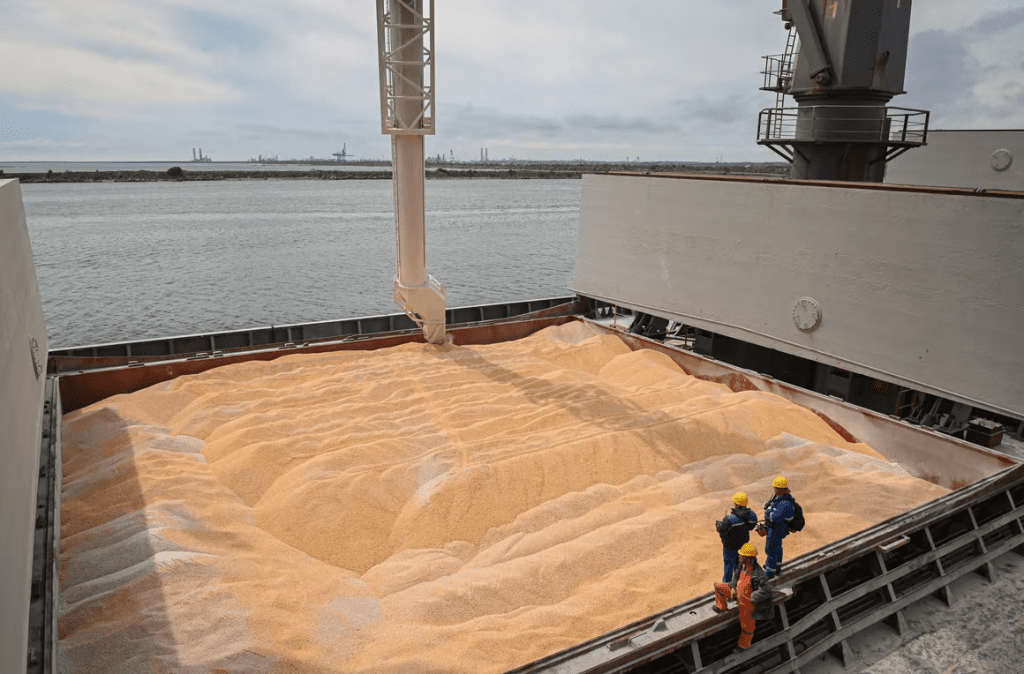The agreement narrowly avoids tougher limits, despite a last-minute push from Poland and France.

The European Commission’s latest proposal to extend the measures until June 2025 introduced import caps on Ukrainian sugar, poultry and eggs. | Daniel Mihailescu/AFP via Getty Images
EU negotiators reached a compromise in the early hours of Wednesday to extend trade liberalization measures for Ukraine for another year, snubbing a Poland-led push for tougher restrictions on grain and other agricultural imports.
The measures, removing all tariffs that weren’t covered by the EU’s 2014 free trade agreement with Ukraine, were first introduced following Russia’s invasion of Ukraine in 2022 to help Kyiv’s economy, which depends on agricultural and steel exports. They were extended last year to June 2024.
The European Commission’s latest proposal to extend the measures until June 2025 introduced import caps on Ukrainian sugar, poultry and eggs to assuage the concerns of EU farmers, against a backdrop of widespread protests.
But in an unexpected shift, the European Parliament approved several additional restrictions in a plenary vote last week. This forced the extra round of negotiations between member countries, represented by the Belgian presidency of the Council, the Parliament’s rapporteur, Latvian center-right lawmaker Sandra Kalniete, and the Commission.
The deal reached Wednesday expands the import caps to honey, maize, oats and groats, the Parliament said in a press release. It also requires the Commission to act more quickly in the event of a surge in imports, with a deadline of two weeks to reimpose tariffs instead of three.
While there won’t be hard limits on wheat, one of the products for which Parliament fought hardest to minimize imports, the Commission will be required to implement measures in case of market disruption.
Crucially for Kyiv, negotiators decided against extending the 2022-2023 reference period for calculating the caps to include 2021, when imports from Ukraine into the EU were much lower. This measure, supported by a coalition of countries including Poland and France, would have cost Ukraine €1.2 billion in lost trade revenues, according to Commission estimates.
The deal, which has the backing of the European People’s Party, the Socialists and Democrats, Renew Europe and the Greens, must now be formally approved by EU countries and the Parliament.
EU diplomats are expected to discuss it at a technical level on Wednesday morning, followed by a sign-off by EU ambassadors. The Parliament’s international trade committee is expected to scrutinize the deal Wednesday afternoon, with a wider vote in the plenary expected in late April.
Source: Politico



